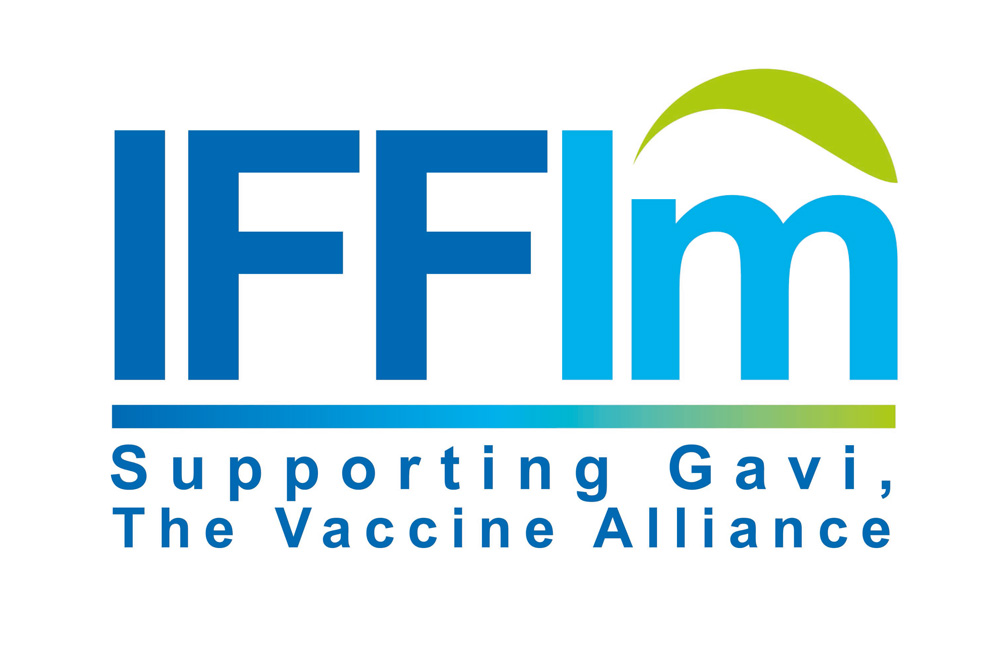Rotavirus vaccines return to an outbreak-hit county in Kenya
- Impact
- Rotavirus vaccines return to an outbreak-hit county in Kenya
Rotavirus vaccines return to an outbreak-hit county in Kenya
16 March 2023
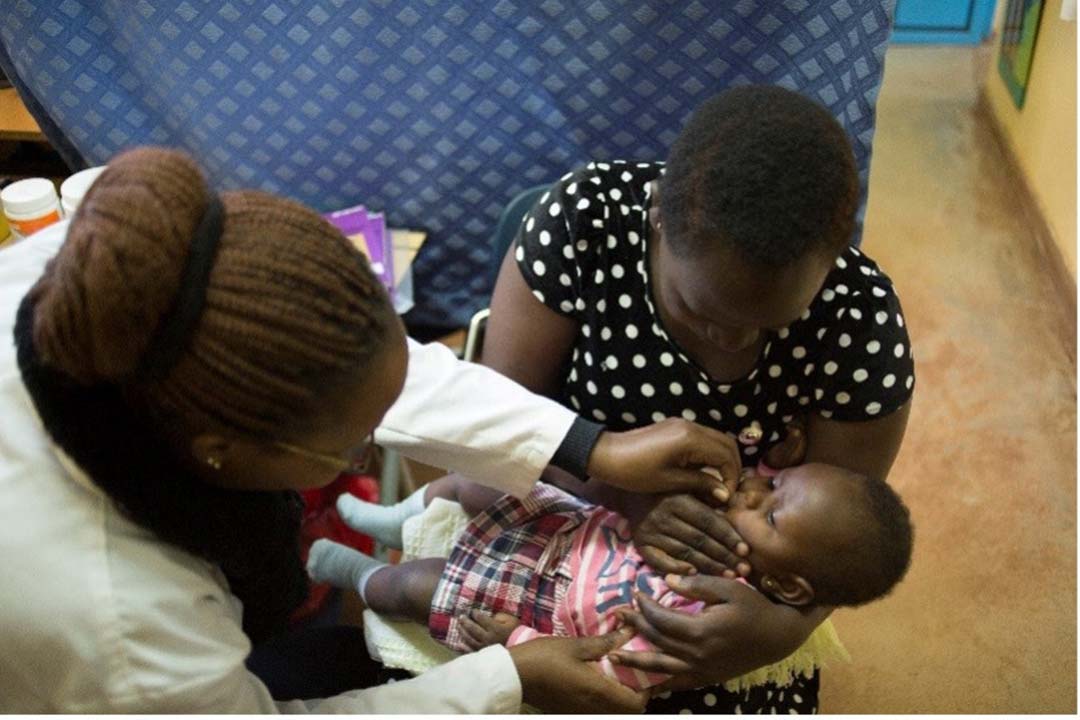
A volunteer clinician gives an infant a dose of the vaccine in Kaptembwa. Credit: Julie Mwabe, CDC Kenya
Supply chain disruption triggered a season of vaccine stockouts and sickness in Nakuru county. Now, health workers and parents are rushing to get their vulnerable babies protected.
Supply chain disruption triggered a season of vaccine stockouts and sickness in Nakuru county. Now, health workers and parents are rushing to get their vulnerable babies protected.
Announcements
IFFIm impact: Rotavirus
IFFIm has disbursed US$ 177 million to support Gavi's rotavirus vaccine programmes.
In September 2022, a terrible stomach bug began to spread in Kaptembwa, a locality in Kenya's Nakuru County. "Children have been admitted to various hospitals for gastroenteritis," announced Elizabeth Kiptoo, Nakuru Country Director for Public Health.

By early October, two babies had died. "My son suffered chronic diarrhoea and vomiting. We tried taking him to the hospital, but he did not make it. The doctors said he had already suffered kidney failure," said Beth Waihiga, who lost her child in the outbreak.
The problem was a nationwide shortage of rotavirus vaccines. Kenya wasn't alone in that: in August, news had broken that unforeseen manufacturing delays at facilities overseas had left four African countries – Kenya, Tanzania, Senegal and Cameroon – facing stock-outs.
Rotavirus is the leading cause of severe, dehydrating diarrhoea in young kids, hospitalising hundreds of thousands each year, and killing more than 200,000 children aged under five in Africa annually. There are no curative drugs for the disease, so health care workers are limited to providing supportive care to sick patients. Vaccines – offered when infants are six, ten and fourteen weeks old in Kenya – are the best prevention. In Nakuru, their absence was being sorely felt.
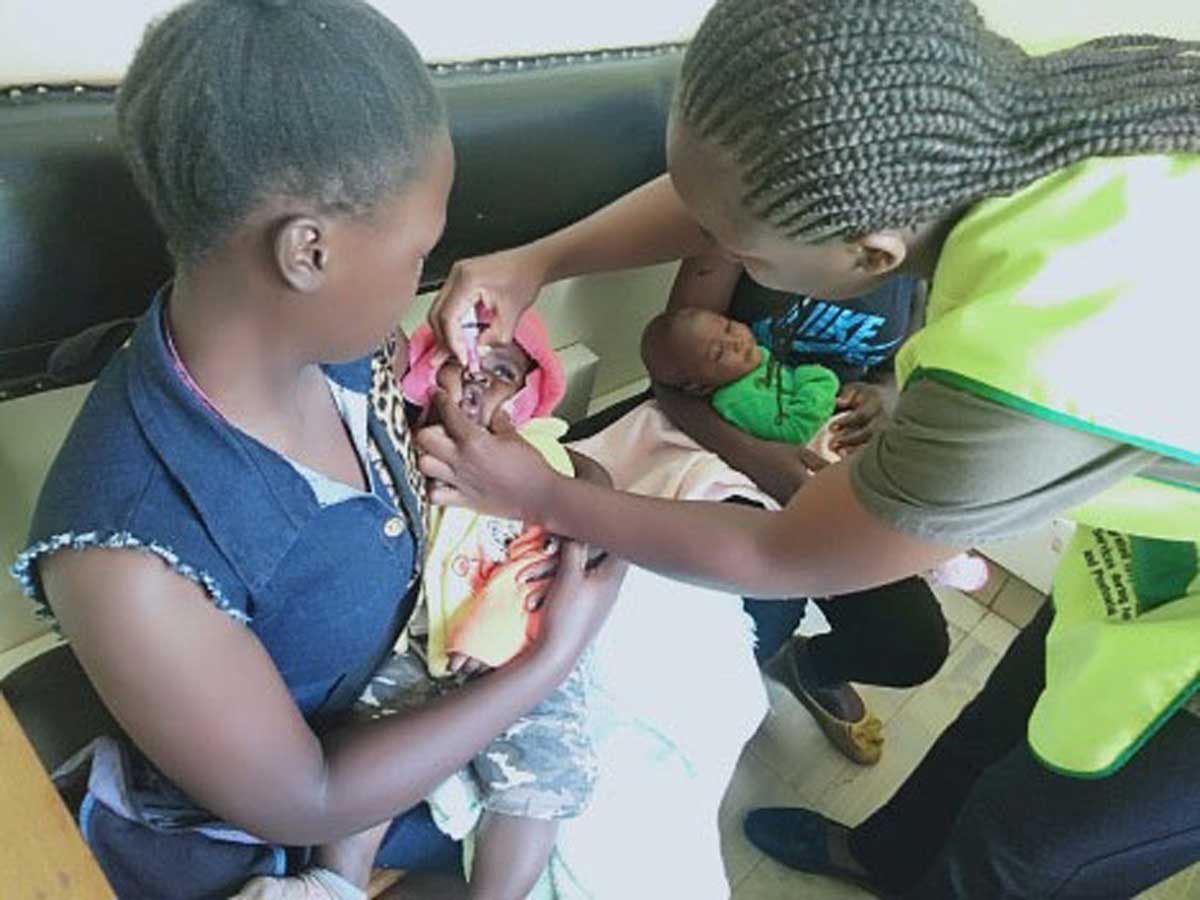
Credit: Stephen Mwangi, Nakuru County press
By 20 October, the supply shortfall appeared to be resolving. Enough oral rotavirus doses for 4,500 infants in Kivumbini, Bondeni and Kaptembwa – the most urgently vulnerable cohort in the county – had been sourced from the Kenya Expanded Programme on Immunization (KEPI) and the National Vaccines and Immunization Programme (NVIP). "I have a team of clinicians and volunteers to traverse the areas and ensure that babies less than one year get their dose," said Kiptoo, receiving the vaccine consignment.
Two of those health workers were Jane Akinyi and Harriet Ngugi. "As a mother, I cannot watch any more children die because of a vaccine-preventable disease. We will reach out to the parents of infants and give them the rotavirus vaccine," said Akinyi, in Bondeni.
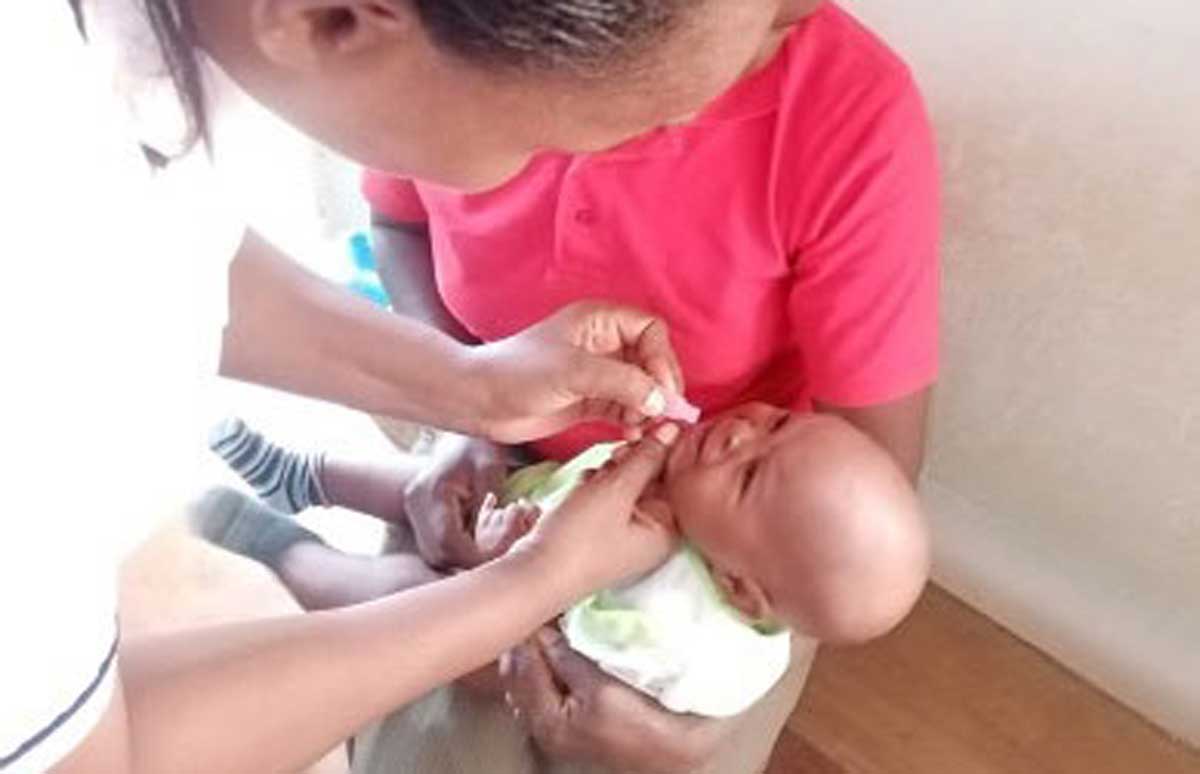
Credit: Harriet Ngugi
Quantities of vaccine remained limited, Ngugi said, speaking to VaccinesWork on the sidelines of a mobilisation session for parents in Kivumbini, but said she intended to work with the community to make sure that the "maximum eligible population" across Nakuru would be reached.
Parents with infants turned out eagerly. "My daughter was vomiting and had a high fever. I took her to the clinic on time and got her medication. I heard about the free vaccine and its immense value. Therefore, I rushed without hesitation. My daughter is now immune," said one mother, Njoki Mbithi, in Bondeni.
“As a mother, I cannot watch any more children die because of a vaccine-preventable disease."
– Jane Akinyi, Nakuru County health worker
"The panic and fear for this killer virus have been addressed, thanks to the County Director for Public Health and her clinicians. My son is only two months old; he has received his first dose. I am ecstatic," said another mother, Joan Simiyu, in Kivumbini.
But the campaign has also encountered hurdles. Ngugi explained that limited network access in major parts of Kaptembwa presented a stumbling block to the campaign. "We had to use manual records while listing details of the infants and parents. This hiccup was quite time-consuming. In addition, written records are prone to get lost," she said.
As of 9 March 2023, the proportion of vaccinated babies in the county stands at about 53%, which translates to about 2,380 children.
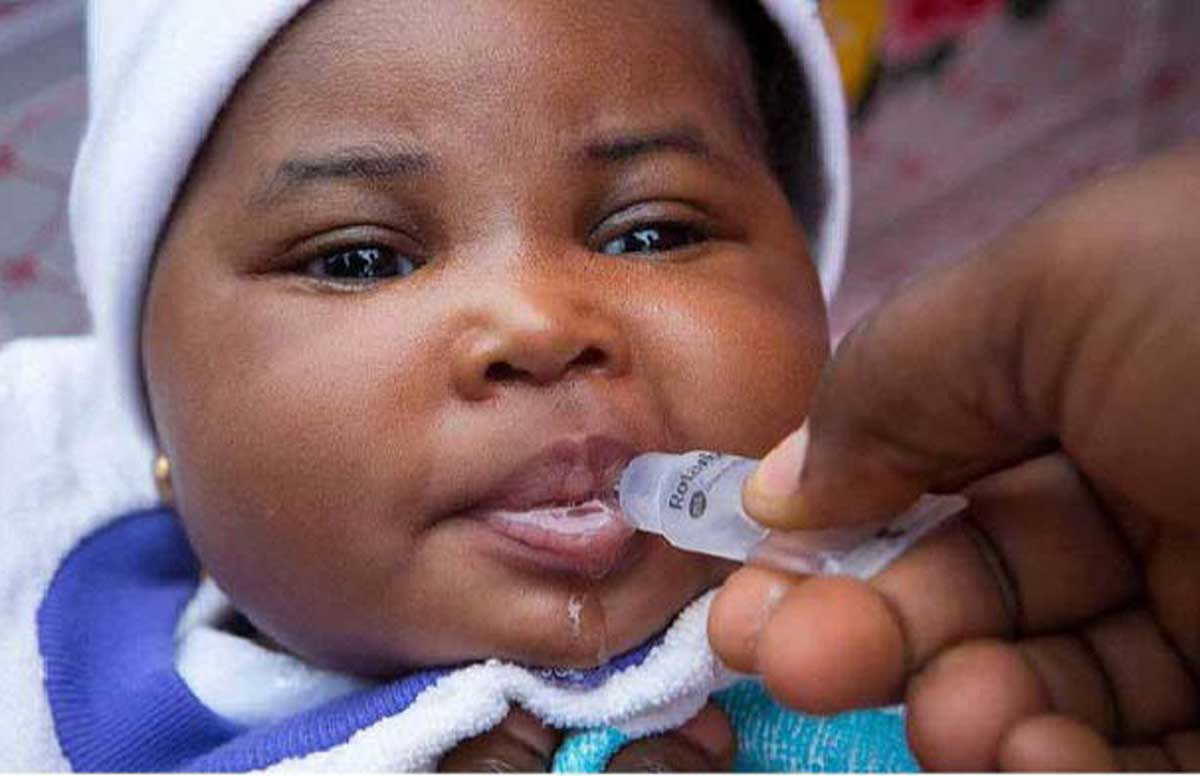
Credit: Julie Mwabe, CDC Kenya.
And still, for Akinyi, the limited vaccine supply was a regrettable constraint. "Due to the limited number of vaccines, the county health ministry targeted infants. Nevertheless, we encountered parents with older kids bringing them for vaccination. We had to inform them of the delicate nature of the situation," she explained.
Challenges notwithstanding, the health workers are undeterred. "We will not tire until we complete our mission," said Ngugi. By December 2022, health workers in the county had noted a significant decline in diarrhoeal cases.

|
This article is republished from VaccinesWork under a Creative Commons license. Read the original article. |
Share this article
Restricted Access Library
 The material in this Restricted Access Library is intended to be accessed only by persons with residence within the territory of a Member State of the European Union and is not intended to be viewed by any other persons. The material in this Restricted Access Library is provided by IFFIm for information purposes only and the materials contained herein were accurate only as of their respective dates. Certain information in the materials contained herein is not intended to be, and is not, current. IFFIm accepts no obligation to update any material contained herein.
The material in this Restricted Access Library is intended to be accessed only by persons with residence within the territory of a Member State of the European Union and is not intended to be viewed by any other persons. The material in this Restricted Access Library is provided by IFFIm for information purposes only and the materials contained herein were accurate only as of their respective dates. Certain information in the materials contained herein is not intended to be, and is not, current. IFFIm accepts no obligation to update any material contained herein.
Persons with residence outside the territory of a Member State of the European Union who have access to or consult any materials posted in this Restricted Access Library should refrain from any action in respect of the securities referred to in such materials and are otherwise required to comply with all applicable laws and regulations in their country of residence.
By clicking Access restricted content: DYNAMIC-LINK-TEXT I confirm that I have read and understood the foregoing and agree that I will be bound by the restrictions and conditions set forth on this page.
The materials in this Restricted Access Library are for distribution only to persons who are not a "retail client" within the meaning of section 761G of the Corporations Act 2001 of Australia and are also sophisticated investors, professional investors or other investors in respect of whom disclosure is not required under Part 6D.2 of the Corporations Act 2001 of Australia and, in all cases, in such circumstances as may be permitted by applicable law in any jurisdiction in which an investor may be located.
The materials in this Restricted Access Library and any documents linked from it are not for access or distribution in any jurisdiction where such access or distribution would be illegal. All of the securities referred to in this Restricted Access Library and in the linked documents have been sold and delivered. The information contained herein and therein does not constitute an offer for sale in the United States or in any other country. The securities described herein and therein have not been, and will not be, registered under the U.S. Securities Act of 1933, as amended (the "Securities Act"), and may not be offered or sold in the United States except pursuant to an exemption from, or in a transaction not subject to, the registration requirements of the Securities Act and in compliance with any applicable state securities laws.
Each person accessing the Restricted Access Library confirms that they are a person who is entitled to do so under all applicable laws, regulations and directives in all applicable jurisdictions. Neither IFFIm nor any of their directors, employees, agents or advisers accepts any liability whatsoever for any loss (including, without limitation, any liability arising from any fault or negligence on the part of IFFIm or its respective directors, employees, agents or advisers) arising from access to Restricted Access Library by any person not entitled to do so.
"Relief" for mothers in Bayelsa state as malaria vaccine makes waves
07 November 2025
